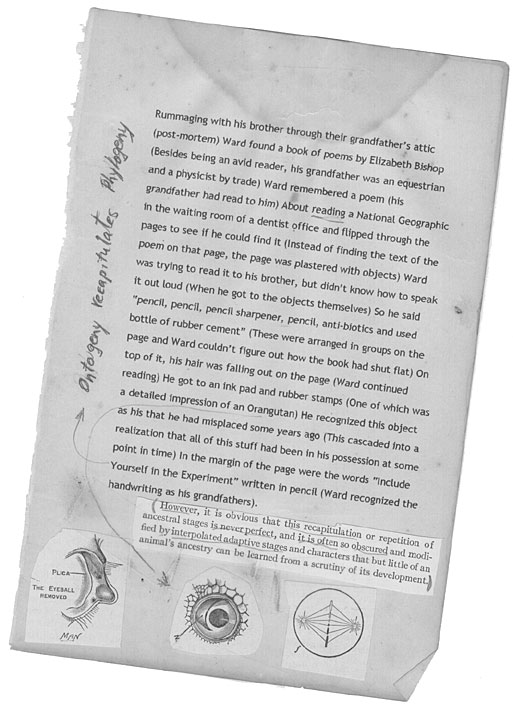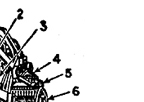
Derek White
The Elizabeth Bishop poem referred to is (I think) "The Waiting Room"--it apparently left an impression on me as I read it over ten years ago. I remember this poem was very effective in capturing that defining moment of self-realization as a child, when you suddenly realize that you are not the external world or your perceptions, but you are an individual entity perceiving this world, separate from others. The study of physics has also influenced my view of my place in this world-especially when I fell into the inward-spiraling realization that we are not justified in making observations or theories about the "world" without including ourselves as observers in the picture. While this adds to the argument that fiction (and dreams) may be just as valid as science, fiction and art also inevitably fall under this dichotomous canopy of being observer-dependent--the role of the reader in fiction is just as important as the role of the writer, for without readers the writing wouldn't exist. On a biological level, "ontogeny recapitulates phylogeny" takes this one step further in expressing that individual development is self-contained in the development of humankind as a whole through the vehicle of art. The process of writing and the process of reading regurgitates the cathartic process of experience and revelation. Writing from dreams is risky as I can't expect the reader to share the same experience set that led to the dream, but it's worth the risk to possibly nail an archetype that hits home with one person than to merely entertain many others.
I should probably also give reference to the graphics I borrowed...they come from Evolution Genetics and Eugenics by Horatio Hackett Newman, University of Chicago Press, 1921.
